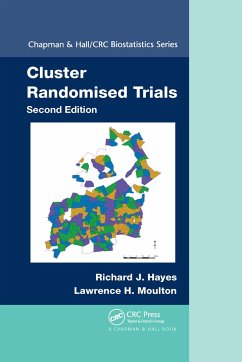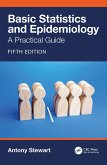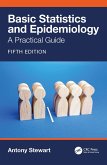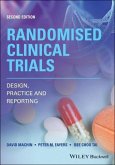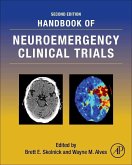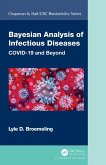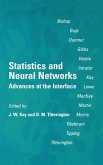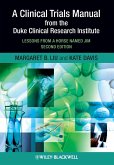Cluster Randomised Trials, Second Edition discusses the design, conduct, and analysis of trials that randomise groups of individuals to different treatments. It explores the advantages of cluster randomisation, with special attention given to evaluating the effects of interventions against infectious diseases. Avoiding unnecessary mathematical detail, the book covers basic concepts underlying the use of cluster randomisation, such as direct, indirect, and total effects.
In the time since the publication of the first edition, the use of cluster randomised trials (CRTs) has increased substantially, which is reflected in the updates to this edition. There are greatly expanded sections on randomisation, sample size estimation, and alternative designs, including new material on stepped wedge designs. There is a new section on handling ordinal outcome data, and an appendix with descriptions and/or generating code of the example data sets.
Although the book mainly focuses on medical and public health applications, it shows that the rigorous evidence of intervention effects provided by CRTs has the potential to inform public policy in a wide range of other areas. The book encourages readers to apply the methods to their own trials, reproduce the analyses presented, and explore alternative approaches.
In the time since the publication of the first edition, the use of cluster randomised trials (CRTs) has increased substantially, which is reflected in the updates to this edition. There are greatly expanded sections on randomisation, sample size estimation, and alternative designs, including new material on stepped wedge designs. There is a new section on handling ordinal outcome data, and an appendix with descriptions and/or generating code of the example data sets.
Although the book mainly focuses on medical and public health applications, it shows that the rigorous evidence of intervention effects provided by CRTs has the potential to inform public policy in a wide range of other areas. The book encourages readers to apply the methods to their own trials, reproduce the analyses presented, and explore alternative approaches.
"Cluster Randomized Trials, now in its second edition, has become a standard text on this important method, which is increasingly used in clinical and public health science. Its eminent readability, methodological rigor, and rich use of real world examples make it an important reference for students, clinical trials practitioners, and methodologists."
-John Clemens, Executive Director, icddr,b, Bangladesh and Professor of Epidemiology, UCLA Fielding School of Public Health
"Cluster Randomised Trials is an extraordinarily practical book for anyone designing or analyzing cluster-randomized studies, covering both concepts and technical material with great clarity. I find it particularly useful in designing and analyzing studies to evaluate different effects of vaccination."
- M. Elizabeth Halloran
"Cluster randomized trials have become an important, and in many cases, the key methodology for assessing the impact of public health interventions, especially for infectious diseases. This book is an absolute essential for any scientist who is involved in the design, analysis or interpretation of such trials."
-Ira Longini, Ph.D. Professor of Biostatistics
Praise for the first edition:
... an informative and readable text on the design, conduct, and analysis of cluster randomized trials (cRCTs). ...the book is rich with examples providing practical illustrations of concepts ... This book by Hayes and Moulton adds new insights into the field ... I would recommend this book highly ... This book would also provide an excellent resource for those who deliver courses on clinical trials and would be an excellent addition to the reference library of any trials unit.
-Marion K. Campbell, Clinical Trials, 2011
This comprehensive book covers all the main topics associated with design, conduct, and analysis of cluster randomised trials (CRTs). It follows a logical structure, which is easy to read and avoids excessive mathematical detail, making the book more accessible to wider readership. ... One of the great advantages of this useful handy book is that it does not just follow the theory; research-based examples aid understanding and bridge theory with practical applications. ...In summary, this book is an excellent introduction to the field of CRTs. It explains the methodology and conduct of CRTs in an accessible way. In addition, theory is complemented by practical examples. On this basis, I would highly recommend the book to all interested parties. If the aim of this book is to help readers to understand and apply a range of methods for the design and analysis of CRTs, then it is successful and accomplishes it well.
-Pharmaceutical Statistics, 2011
... the authors have achieved their aim in providing a suitable introduction to even the more advanced issues for everyone involved in the planning, conduct and analysis of these studies.
-ISCB News #49, June 2010
...This is a well-written book which I definitely recommend, especially as a textbook for graduate or postgraduate level studies, or as a reference book for researchers working on the design or analysis of CRTs. ...
-Journal of the Royal Statistical Society, Series A, Volume 173, Issue 1, January 2010
... highly recommend this book for its unique and very important strengths. In particular, Hayes and Moulton should be congratulated for their focus on infectious diseases, a research topic which has received limited attention from statisticians interested in randomized trials. The broader discussion of direct and indirect effects of intervention is also very valuable.
-Neil Klar, Journal of Biopharmaceutical Statistics, 2010, Issue 1
...The authors point out that the CRT is relatively new and that, although the topic is covered here pretty comprehensively, it is still an active research area. It's difficult to think of any important issue or aspect that is not discussed here, and at length and in depth. ... There is no heavy mathematics so the material is accessible to a wide range of readers. ...
-International Statistical Review (2009), 77, 2
-John Clemens, Executive Director, icddr,b, Bangladesh and Professor of Epidemiology, UCLA Fielding School of Public Health
"Cluster Randomised Trials is an extraordinarily practical book for anyone designing or analyzing cluster-randomized studies, covering both concepts and technical material with great clarity. I find it particularly useful in designing and analyzing studies to evaluate different effects of vaccination."
- M. Elizabeth Halloran
"Cluster randomized trials have become an important, and in many cases, the key methodology for assessing the impact of public health interventions, especially for infectious diseases. This book is an absolute essential for any scientist who is involved in the design, analysis or interpretation of such trials."
-Ira Longini, Ph.D. Professor of Biostatistics
Praise for the first edition:
... an informative and readable text on the design, conduct, and analysis of cluster randomized trials (cRCTs). ...the book is rich with examples providing practical illustrations of concepts ... This book by Hayes and Moulton adds new insights into the field ... I would recommend this book highly ... This book would also provide an excellent resource for those who deliver courses on clinical trials and would be an excellent addition to the reference library of any trials unit.
-Marion K. Campbell, Clinical Trials, 2011
This comprehensive book covers all the main topics associated with design, conduct, and analysis of cluster randomised trials (CRTs). It follows a logical structure, which is easy to read and avoids excessive mathematical detail, making the book more accessible to wider readership. ... One of the great advantages of this useful handy book is that it does not just follow the theory; research-based examples aid understanding and bridge theory with practical applications. ...In summary, this book is an excellent introduction to the field of CRTs. It explains the methodology and conduct of CRTs in an accessible way. In addition, theory is complemented by practical examples. On this basis, I would highly recommend the book to all interested parties. If the aim of this book is to help readers to understand and apply a range of methods for the design and analysis of CRTs, then it is successful and accomplishes it well.
-Pharmaceutical Statistics, 2011
... the authors have achieved their aim in providing a suitable introduction to even the more advanced issues for everyone involved in the planning, conduct and analysis of these studies.
-ISCB News #49, June 2010
...This is a well-written book which I definitely recommend, especially as a textbook for graduate or postgraduate level studies, or as a reference book for researchers working on the design or analysis of CRTs. ...
-Journal of the Royal Statistical Society, Series A, Volume 173, Issue 1, January 2010
... highly recommend this book for its unique and very important strengths. In particular, Hayes and Moulton should be congratulated for their focus on infectious diseases, a research topic which has received limited attention from statisticians interested in randomized trials. The broader discussion of direct and indirect effects of intervention is also very valuable.
-Neil Klar, Journal of Biopharmaceutical Statistics, 2010, Issue 1
...The authors point out that the CRT is relatively new and that, although the topic is covered here pretty comprehensively, it is still an active research area. It's difficult to think of any important issue or aspect that is not discussed here, and at length and in depth. ... There is no heavy mathematics so the material is accessible to a wide range of readers. ...
-International Statistical Review (2009), 77, 2

